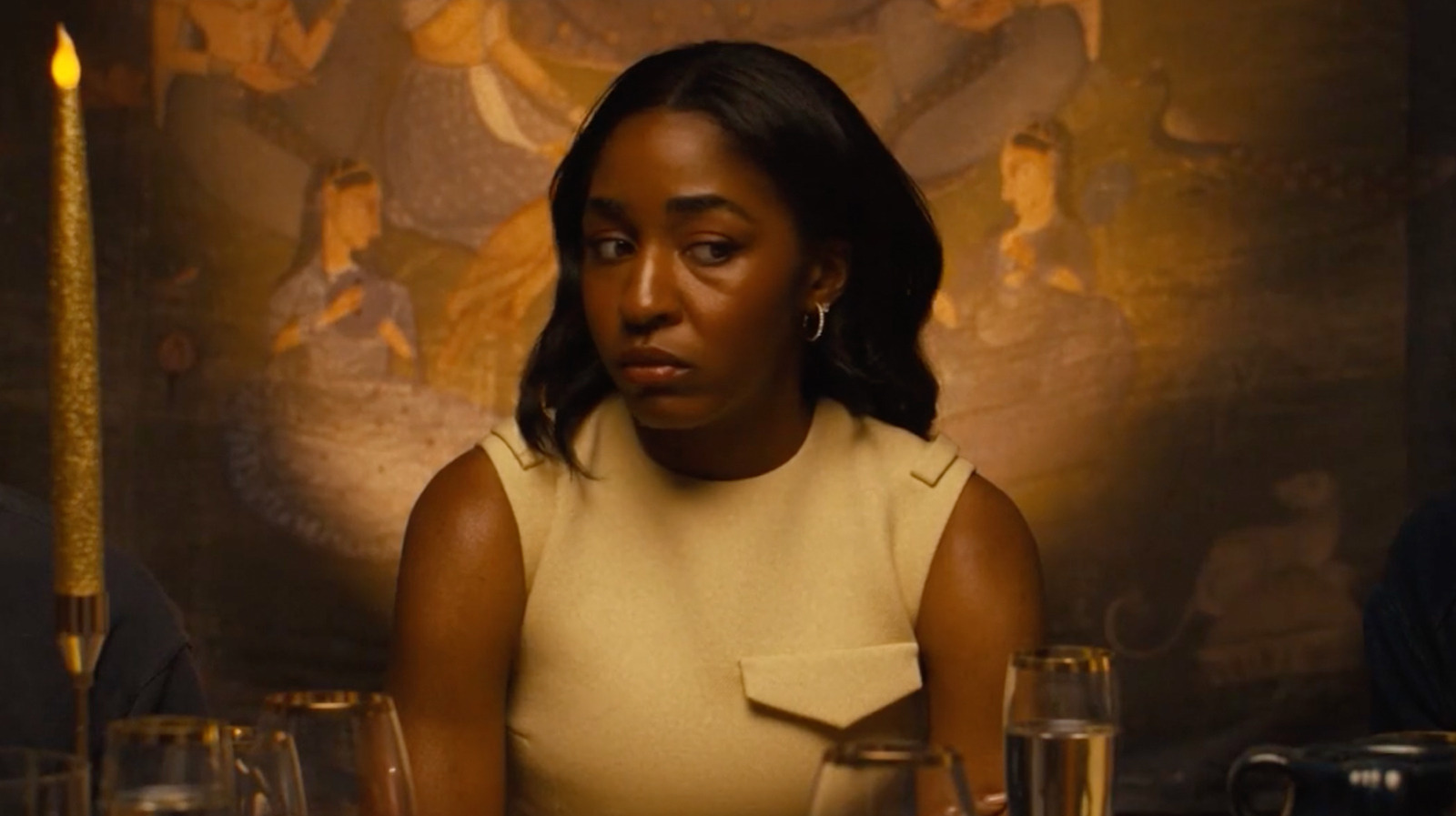

If “Opus” had been released a decade ago, it might be easier to praise it for its originality and depth when it comes to building a discussion around celebrity worship (and its relationship to cult behavior), and for turning horror movie tropes on their head. Sadly, it’s being released at the tail end of a wave of thrillers which all follow the basic structure: eccentric wealthy person and/or celebrity invites a select few to join them at a remote location, whereupon their devious and murderous secret plans are enacted. “Glass Onion,” “Blink Twice,” a bit of “Midsommar,” and especially “The Menu” are all recent examples that “Opus” recalls somewhat haphazardly, and the comparisons don’t do it many favors. Sure, being part of a trend or subgenre in cinema doesn’t automatically disqualify a film — there’s enough room for “Armageddon” and “Deep Impact,” in other words — but the issue is that “Opus” holds its cards too close to the chest for too long, losing viewers before it has a chance to spring a legitimately compelling twist on them.
“Opus” introduces a fictional mega-popstar, Alfred Moretti (John Malkovich), who made a massive impact on the industry and the culture 30 years earlier before unceremoniously disappearing from the public eye. Suddenly, he’s back with a big new album entitled “Caesar’s Request,” and in very Agatha Christie fashion, he’s invited only a few people to come out to the middle of nowhere in Utah, where his compound resides, and listen to the album first. These not-so-lucky guests are a paparazzo, Bianca (Melissa Chambers), a former rock star rival of Alfred’s, Bill (Mark Sivertsen), a social media influencer, Emily (Stephanie Suganami), a TV personality, Clara (Juliette Lewis), and the editor of a music publication, Stan (Murray Bartlett). In very “Willy Wonka” style, however, Alfred also invites one of Stan’s employees, the young and ambitious (but still unknown) journalist, Ariel Ecton (Ayo Edebiri). Her invite is something that everyone assumes to be some act of charity on the star’s part, especially Stan, who insists that he’ll be the only one to write the final pieces about their time at Alfred’s compound.
Sure enough, it’s Ariel who begins to poke around the mysteries surrounding Alfred, his new album, his relationship with a cult organization called the Levelists, and why every invitee is intensely monitored and shadowed by a Levelist aide. Things eventually get dangerous and violent, but the big issue is that when they do, it’s still unclear why. Those answers do come, but for some it’ll be too late, and I can’t blame them — slasher films work best when some set of stakes and rules are established, even when they’re going to be changed later, and “Opus” is too obtuse for too long.

Leave a Reply